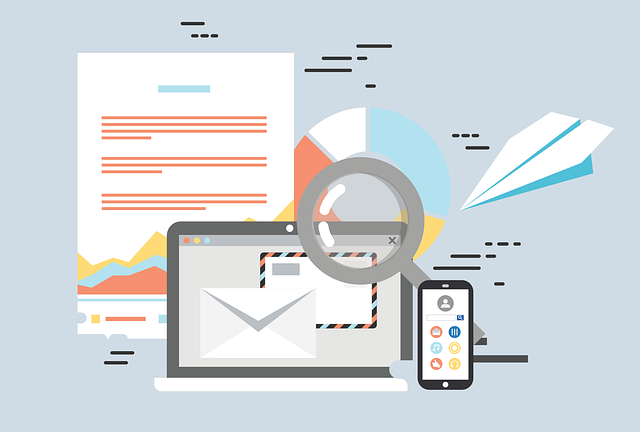
We know we’re not good at multitasking, but we’re increasingly doing task switching. Also because the work demands it. What does it turn out to be? Those who have gaming experience and casually play funny games are better at switching between tasks when it comes to accuracy, speed, and filtering information.
Millennials are now well into the labor market and generation Z is also coming at a rapid pace. Where the oldest millennial employees experienced the beginning of the influence of technology in the workplace, the newest generation of Z employees cannot even imagine a world without computers.
Thanks to that technologization, the gaming industry has emerged. Millennials in particular were introduced to this new, exciting way of entertainment. In the early days of games, the negative consequences of all that gaming were looked at with suspicion, but nowadays you hear more and more sounds of positive influences that games can have on the development of young people.
Interested neuroscientists
For example, gaming can help children and young people make quick decisions, teach them to work together, and fulfill the need to be part of a community. Despite the argument that children who play a lot of games have fewer social skills in the offline world.
In this discussion, we have already reached the point where in recent years neuroscientists have been interested in the effects of gaming on people’s cognitive development. The discussion becomes even more interesting when we look at the influence of gaming on possible performance in the workplace. Because, if gaming affects the brain, what are the effects of gaming on the way employees perform their work?
Finnish youngsters
A recent study of Finnish adolescents and young adults (13 – 24 years) looked at the influence of gaming on the performance of the working memory of this group.
This research shows that young people especially benefit from gaming when the tasks they have to perform become more complex. When more information had to be processed, the researchers saw that the performance in terms of accuracy and speed was better the more the adolescents and young adults gamed. It also emerged that the group studied reacted better to unexpected events while they were working on a certain task.
The results of this study suggest that gaming has a positive impact on filtering out irrelevant information and switching back to a particular task when someone loses attention for a moment. This, of course, speaks in favor of gaming for adolescents and young adults. But how does this translate into the influence on performance in today’s workplace?
Employers recognize that service is often decisive and thanks to this race for better and better service, it is expected from all angles that you as a company can answer customer questions 24/7. This also means that this is more demanded of employees. The daily 9-to-5 working days are only sporadic, employees are constantly online.
We see this more and more often. Especially now that due to the covid-19 pandemic many governments are still urgently requesting to work from home so that employees now see work and private life mixed up in the same place. This means not only that people are constantly online for work, but also that people are always available online for family and friends (and other distractions). This is something that you as an employer must also take into account and that must be managed in the right direction.
ALSO READ: 5 Inspiring Movies When Looking for a Job
Not being able to multitask
Much has been said and written about the fact that man is not good at multitasking and it is even the case that we cannot do it at all. What we do is task switching: switching from one task to another.
That’s what happens the moment you type an e-mail and meanwhile read a WhatsApp message that comes in. We’ve already become quite quick to switch between these tasks. But the big problem with this switching is that the different tasks affect each other. Firstly, switching takes time, so you become less efficient, but the margin of error also increases. In addition, you then want to switch back to the original task, which also costs extra energy, because you have to find out exactly where you were.
That we get tired of task switching is an open secret. People from a business who ‘multitask’ a lot are more likely to become exhausted, their performance goes down and they are more likely to get burned out. Experts are clear about ‘multitasking’: stop it. But is this feasible at a time when we are expected to be constantly online and ready to fix problems? If this is no longer an option, should we see if we learn to switch faster and better? To increase efficiency and reduce the margin of error.
Positive results
Can encouraging a healthy amount of gaming contribute to improving task switching and thus improving performance in the workplace? The first studies on this question give positive results. The gaming youngster performs better in switching tasks on accuracy, speed, filtering information, and switching back to the original task compared to the non-gaming youngster.
Does this mean that employers in gaming as a hobby have found a new selection criterion for hiring new employees? Or that special game training should be added to the personal development plan for the employee? Perhaps employees will receive a PlayStation Store credit for the purchase of new games as a secondary condition of employment in addition to a gym membership? These are questions that may seem far away and unrealistic now, but the number of tasks and growing number of impressions that we as humans have to deal with continue to grow. This also increases the need to deal with this properly. It is therefore important to be open to innovative and responsible initiatives that can contribute to better performance in the workplace.
 Instagram Views Have More Value Than Likes – Https://Www.Smm-World.Com/Buy-Instagram-Views
Instagram Views Have More Value Than Likes – Https://Www.Smm-World.Com/Buy-Instagram-Views Another reason why Instagram views are more valuable than likes is that there are audience who enjoy promotional or marketing content by simply watching them. Even if they don’t engage, they still take great delight in viewing them.
Another reason why Instagram views are more valuable than likes is that there are audience who enjoy promotional or marketing content by simply watching them. Even if they don’t engage, they still take great delight in viewing them.
 Instagram Views Have More Value Than Likes – Https://Www.Smm-World.Com/Buy-Instagram-Views
Instagram Views Have More Value Than Likes – Https://Www.Smm-World.Com/Buy-Instagram-Views



